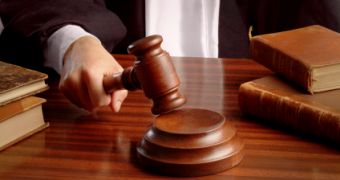In some of the most controversial cases in courtrooms today, eyewitness accounts can mean the difference between a conviction or an exoneration. A jury can be persuaded to give a certain verdict based on facts presented by witnesses, but psychologists have always known that memories can be manipulated without the targeted person even knowing it.
In a recent study, they demonstrated that people could be convinced to give false testimonies about a certain situation, by doctoring video evidence of that account. A paper detailing the finds appears in this month's issue of the journal Applied Cognitive Psychology, Wired reports.
University of Warwick experts devised a test in which 60 students underwent a computerized gambling task. After watching false videos, some 50 percent of the participants were willing to testify that they actually saw others cheat at the game, even though that didn't happen in reality. The research also revealed that students who were told video evidence of the deceit existed, but were not shown the actual footage, were less likely to give false testimonies. Only ten percent of them trusted the words of the researchers over their own memories.
“Our participants were willing to sign a statement to say that they witnessed another person cheating in an experiment, when in fact, that person never cheated. So we now know that digitally altered footage can change people’s perceptions of an event, and have serious consequences for how people behave,” University of Warwick psychologist Kimberley Wade explained in an e-mail. The students were also told that, if they signed the testimony, the one “responsible” for cheating would be punished.
A worrying fact that was also discovered was that some of the participants seemed to create false memories, based on the newly seen video footage. “One subject told us that the other person had acted suspiciously and taken money from the bank when there was clearly a cross on the screen. So we are confident that a significant portion of people who saw the fake video genuinely believed – or even falsely remembered – that they had witnessed the cheating,” Wade added.
The new research bears considerable implications for the field of law enforcement and justice. The UW experts warn that eyewitness accounts are very similar to other types of physical evidence. “We need to remember that witnesses’ memories should be treated like fingerprints, DNA, and other physical evidence – with a lot of care. If we don’t treat them with care, then we run the risk of contamination,” Wade concluded.

 14 DAY TRIAL //
14 DAY TRIAL //